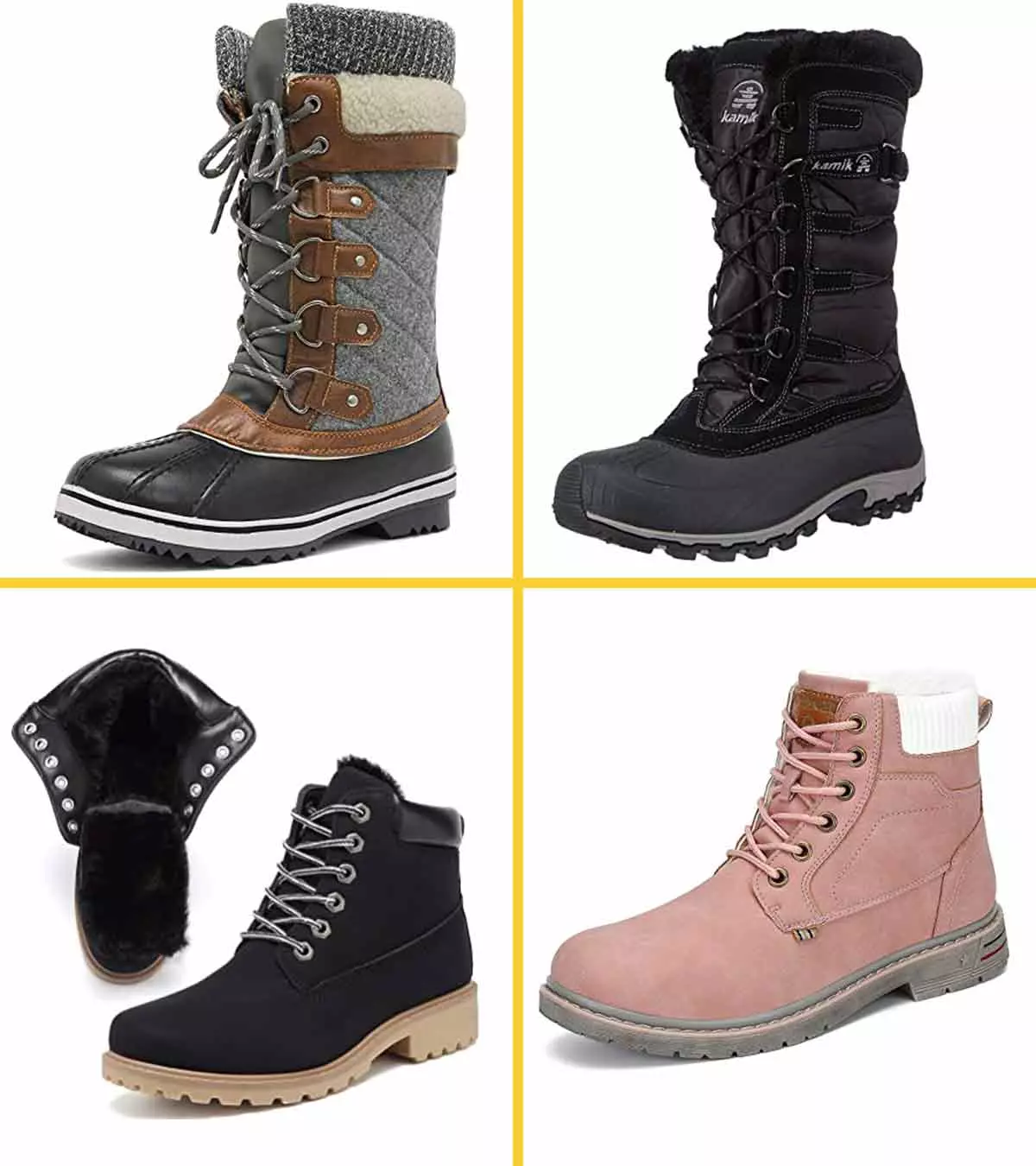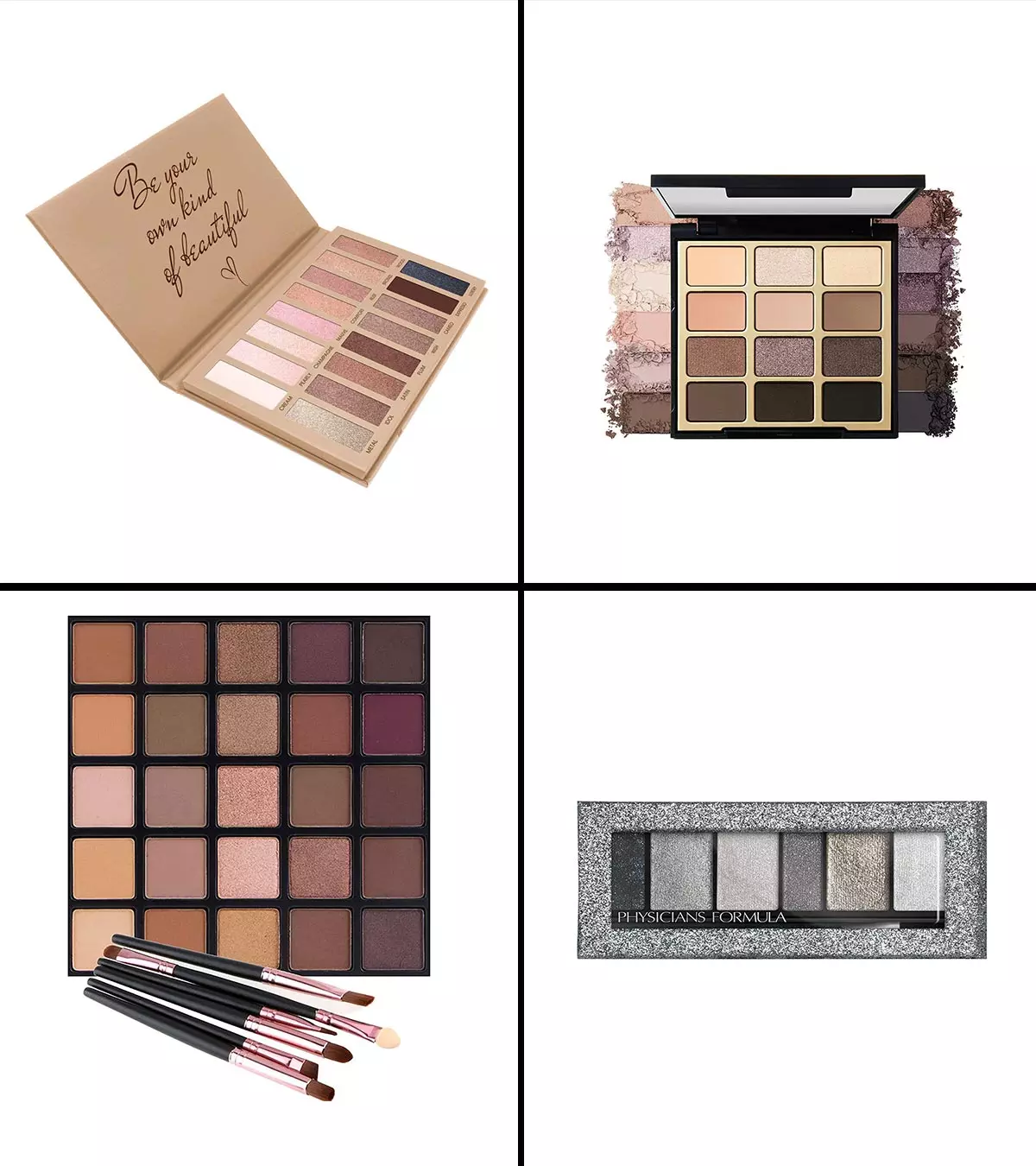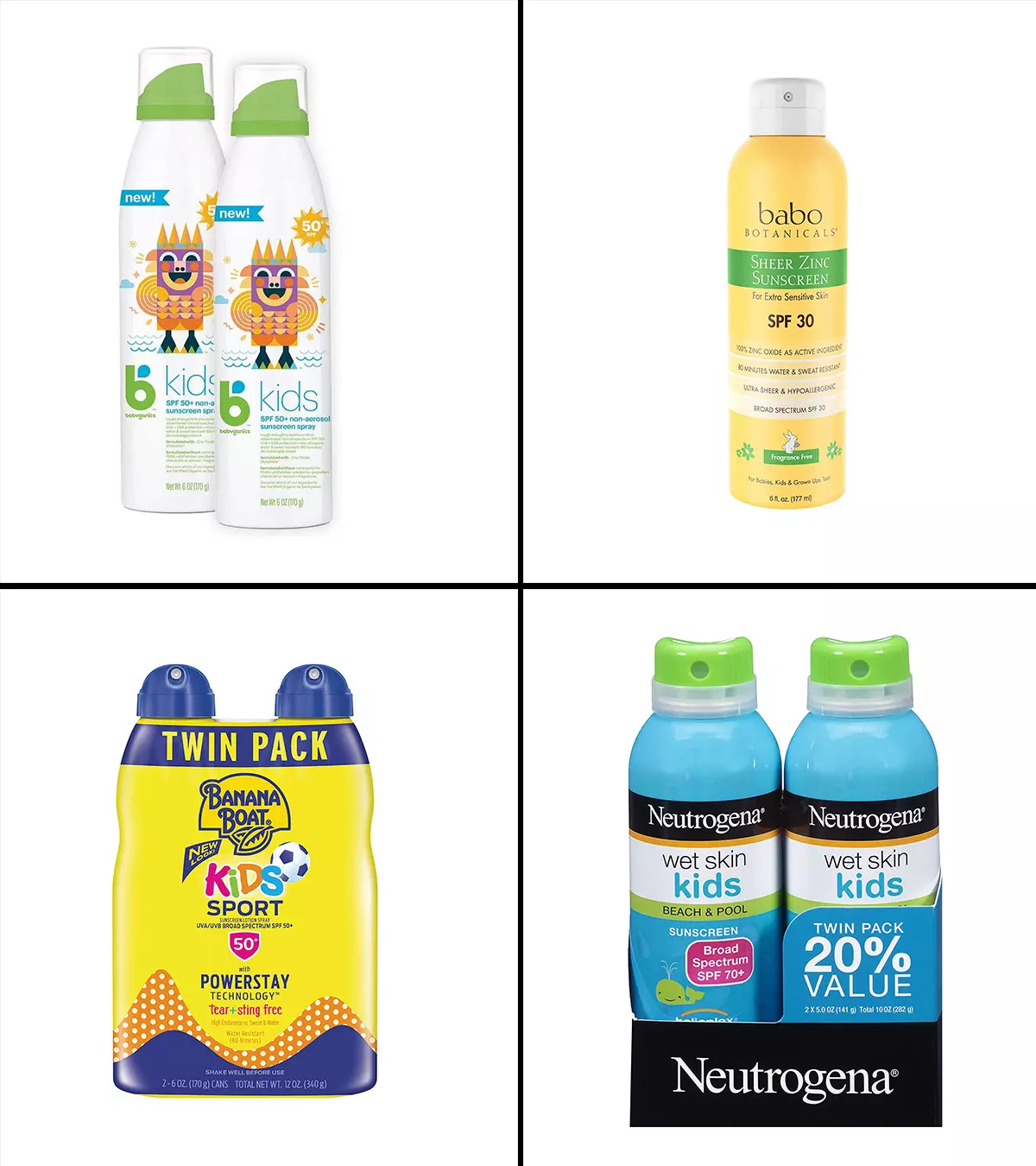
Image: MomJunction Design Team
As your child grows up, they will develop new interests and hobbies all the time. If one of their areas of interest involves science, a great way to nurture it is by exposing them to the best science books for kids.
Not all books are created equal—some are more interactive and easy to learn from, especially if written specifically for kids. Having these parent-recommended books handy will enable your child to get to the bottom of their many “whats” and “whys” while piquing their interest in the subject even more.
Keep scrolling as we have listed some of the best-selling and most engaging science books for children to quench their thirst for knowledge and help them understand the world better.
Top Picks
21 Best Science Books For Kids
1. Best Pop-Up Picture Book: Encyclopedia Prehistorica Dinosaurs: The Definitive Pop-Up

Children find dinosaurs fascinating and are especially excited to learn about those majestic beasts. So imagine how thrilled your child would be when they see images of dinosaurs popping up from a book. The Encyclopedia Prehistorica Dinosaurs: The Definitive Pop-Up is not a regular encyclopedia on dinosaurs. It is a pop-up picture book with colorful images of this pre-historic creature.
The author depicts dinosaurs as “shield bearers” in full-body armor and headgear. From the scary T-Rex to the lesser-known herbivorous dinosaurs, this book features them all, with interesting facts and trivia about each one. Watch this review video where a reviewer offers his expert commentary on the book.
Age: 5-9 years
Author/Illustrator: Robert Sabuda, Matthew Reinhart
Pros
- Very interactive and interesting
- Includes comprehensive descriptions
- Combination of facts and light humor
- Has both large and small pop-ups
Cons
- Pop-ups may be prone to breaking over time.
, an experienced English teacher and reading specialist, says, “People might think that scientific concepts are not suited for young children as they can be hard to master. But the earlier one exposes children to the way the world around them works, the faster they can make connections to science.”
 Did You Know?
Did You Know?2. Best Inspirational: Rosie Revere, Engineer

Does your child have a knack for creating something new out of something old, but feels bogged down each time the little experiment fails? If yes, this book about some fascinating engineering breakthroughs is what you are looking for.
Rosie Revere dreams of becoming an engineer someday and is always engrossed in her experiments. However, people fail to understand her creations and brush them off. So, she does not show her experiments to anyone until her aunt Rose discovers them and applauds even her failed attempts.
With detailed illustrations explained through simple rhyming text in the form of a story, this book offers encouragement for every little future engineer trying to make their experiments successful. Check out this video to learn more.
Age: 5-7 years
Author/Illustrator: Andrea Beaty (Author), David Roberts (Illustrator)
Pros
- New York Times best-selling book
- Offers life lessons
- Has rich illustrations
- Available as audiobook and kindle version
Cons
- Might be slightly large for children to handle the book on their own
3. Best For Beginners: National Geographic Little Kids First Big Book of Space

Our mesmerizing solar system never fails to draw young minds. However, the difference between the sun, moon, stars, and the various planets can be a tad bit confusing for kids. Science, astronomy, and space exploration become less confusing when there are colorful, bright images to learn from.
This book is filled with beautiful pictures of our solar system along with information about it. It covers the basic concept of space in simple text, so it is easy for children to read, grasp, and understand the peculiarities of the various stars and satellites in space.
Age: 4-8 years
Author/Illustrator: Catherine D. Hughes (Author), David A. Aguilar (Illustrator)
Pros
- Chapterwise explanations for clear distinctions between concepts
- Encourages parent-child bonding
- Written by an award-winning author
- Easy to understand for young children
Cons
- Binding may not be as strong
"My 4.5-year-old son can't get enough of this book. It's full of captivating pictures and educational tidbits. He pulls it out every day now! On the downside, it's a tad outdated, with data accurate only till 2012. Yet, the core information about stars and planets remains useful and relevant. Plus, the use of easy-to-understand language is a win."
 Quick fact
Quick fact4. Best For Curious Minds: 5,000 Awesome Facts

If your child is curious about every single thing that they comes across, then it is best to invest in a book that satiates that curiosity with interesting information about various topics.
From ants to sharks, toys to robots, history to geography, this book contains facts about all the topics that probably ever intrigued your child. Colorful, bright images with simple text make it easy for kids to read and understand even the most complex topics.
Age: 8-12 years
Author: National Geographic Kids
Pros
- Covers a range of topics
- Keeps children hooked
- Offers learning experience
- Pictures help retain facts in memory
Cons
- Too many facts for some children to remember
"The book is substantially large, brimming with intriguing facts that keep my children intrigued. It's excellent in quality, with vivid images and sturdy bindings. Besides keeping my brood entertained, it also helped me garner fun facts while flipping through it."
5. Best Informative: There’s No Place Like Space: All About Our Solar System

If you are looking for a storybook that is interesting to read and informative, then why look at any other book. This one here is what you need.
With the help of fictional characters, this book takes kids on a journey of our solar system. Kids get to learn about the different aspects of the solar system, such as the atmosphere on different planets, comets, meteors, black hole, and so on. The wonderful animated illustrations make it all the more fun to read about different planets and their characteristics.
Age: 4-8 years
Author/Illustrator: Tish Rabe (Author), Aristides Ruiz (Illustrator)
Pros
- Adventurous read
- Both entertaining and informative
- Rhyming sentences for easy memorization
- Colorful illustrations to keep children interested
Cons
- May not be as comprehensive
6. Best For Learning Ocean Animals: The Snail and the Whale

This book lets your child explore the ocean and the amazing creatures that thrive in it, but without having to leave the comfort of their room.
This book traces the adventures of a snail and a humpback whale who set out to explore the world through the ocean. They travel to different places and learn about trust, friendship, and other human emotions through animals. Explained in rhyming text with fascinating images of fishes, this book is engaging and fun to read.
Age: 3-7 years
Author/Illustrator: Julia Donaldson (Author), Axel Scheffler (Illustrator)
Pros
- Written by a best-selling author
- Has colorful, engaging illustrations
- Has several positive messages
- Ideal for bedtime stories
Cons
- Word play may be confusing for some children
 Did You Know?
Did You Know?7. Best With Facts And Data: National Geographic Kids Why?: Over 1,111 Answers to Everything

When your child asks you what is on the other side of a turtle’s shell or why the Earth does not float away in space, do you have an answer? Don’t worry if you don’t. We’ve got you covered! No, don’t google the answer, but give your child this book and save yourself from the questions that your child has for you.
This book has answers to all the common and absurd questions that curious children ask their parents. Science or geography, it tackles questions from all fields. Let your little explorer delve deeper into the world around you to see what lies beyond.
Age: 8-12 years
Author: Crispin Boyer
Pros
- Covers a broad range of topics
- Has various interesting activities
- Ideal for curious children
- Humorous writing style
Cons
- Some parents may not agree with certain facts, such as the theory of evolution
"This book instantly captivates my grandkids, promoting fun family time. We also gifted it to a recuperating friend; it served as a pleasant distraction. I'd certainly endorse it."
8. Best For Christian Learning: Indescribable: 100 Devotions for Kids About God and Science

This book talks not just about science but also about how God is behind it. It is a good way to introduce both religion and science to the child and how they could be related.
The book suggests how God created this world and has been running it ever since. There are psalms and prayers, along with plenty of information about science. It is an ideal book for children studying in Christian schools.
Age: 6-10 years
Author: Louie Giglio
Pros
- Ideal for teaching good morals
- Has interesting illustrations
- Easy to read and understand
- Comes with STEM activities
Cons
- Binding could have been stronger
9. Best Adventurous: If I Built a Car

This book is a car lover’s ultimate dream. It is about a boy named Jack, who has designed his fantasy car taking inspiration from other vehicles. He and his father then set out on an adventure while test-driving this fantastic car.
This book talks about the tools and different parts of a car that will fascinate your young engineer. With exciting illustrations, rhyming text, and of course, cars, this book makes a good read for little children.
Age: 3-5 years
Author: Van Dusen, Chris
Pros
- Features fun rhymes
- Promotes imagination in children
- Features intricate artwork
- Ideal for developing interest in reading
Cons
- Pages may not be as thick
10. Best For Understanding Artificial Intelligence: The Wild Robot

Teaching little children the concept of artificial intelligence is not difficult. At least not when you have this book with you.
Covering the life of a robot named Roz, this book discusses topics such as life and death and artificial intelligence through illustrations and quirky scenarios. Through a simple story, children learn a lot about the difference between humans and robots.
Age: 8-11 years
Author: Peter Brown
Pros
- New York Times best-selling book
- Instills interest in new technologies in children
- Talks about survival skills
- Entertaining and engaging
Cons
- Mostly black-and-white illustrations
11. Best Book On Gems And Rocks:My Book of Rocks and Minerals: Things to Find, Collect, and Treasure
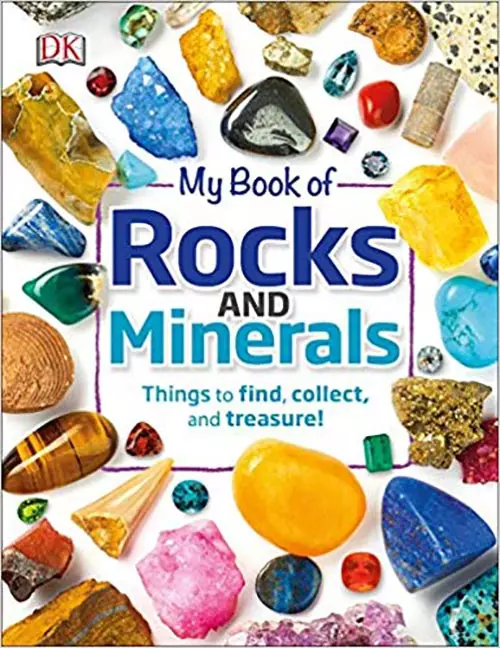
Absolutely nothing on our planet is useless. This book contains some astoundingly beautiful high-definition images of rocks, fossils, gems, and minerals hidden in deep caves and even outer space. These images are a fun way to learn more about rocks. This book for budding environmental researchers and geologists shares a lot of information about gems and minerals that you might not find anywhere else.
Age: 6-9 years
Author: Devin Dennie
Pros
- Familiarizes children with geology
- Comes with interesting illustrations
- Features fun facts
- Offers bite-sized information for easy memorization
Cons
- May not be interesting for all children
"I bought this delightful book for my nephew, and it's been a lovely find. We love the clear, colorful pictures and easy-to-understand information on rocks. It has even managed to engage the adults in the family. Although there are some complex rock names, it is an insightful guide for my nephew and his friends."
12. Best Interactive Science Book: Everything You Need to Ace Science in One Big Fat Notebook: The Complete Middle School Study Guide
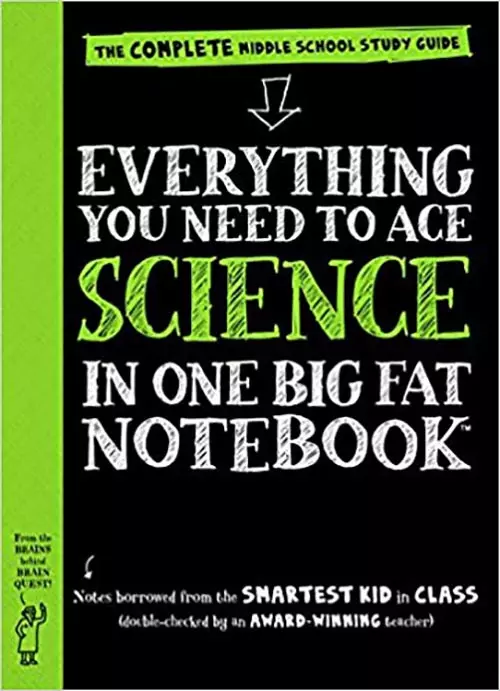
Sometimes studying from a textbook can get very boring, especially if it is a complicated subject. Thus, books like this make studying fun. This book can be used to introduce children to new topics and make it easy for them to understand when they read from the regular textbook.
It contains visually appealing illustrations that help children understand complicated concepts such as health care, hormones, and puberty.
Age: 11-14 years
Author: Workman Publishing (Author), Michael Geisen (Editor), Sharon Madanes (Contributor), Editors of Brain Quest (Draft Writer)
Pros
- Can be used to supplement school learning
- Covers a broad range of topics
- Includes summaries and highlighted ideas
- Has mnemonics for memorable shortcuts
Cons
- May not offer elaborate explanations
13.Best Dinosaur Themed Book: National Geographic Little Kids First Big Book of Dinosaurs
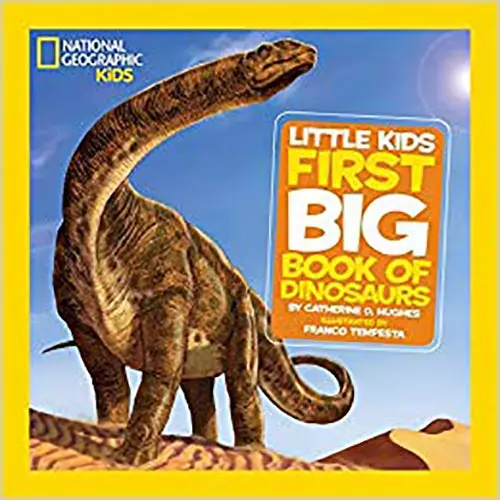
Dinosaurs are still a mystery. No matter how much children read about them, they want to know more. So, why not give them what they want?
This book comes with some eye-catching, colorful illustrations of this now-extinct species. It has information related to specific species of dinosaurs. Additionally, it also contains phonetic translations of names of dinosaurs, making it easier for children to identify a type by the name.
Age: 4-8 years
Author/Illustrator: Catherine D. Hughes (Author), Franco Tempesta (Illustrator)
Pros
- Covers all types of dinosaurs
- Easy-to-understand texts
- Includes fun facts
- Features age-appropriate information
Cons
- Pages may come out of binding over time
"My child, a dino enthusiast, loves this sturdy hardcover book with easy-to-read and fascinating dinosaur facts. It features phonetic transcriptions of complicated names to make reading smoother. On each revisit, he learns something new, making our reading moments enjoyable and enriching."
14. Best Book On Women Scientists:Women in Science: 50 Fearless Pioneers Who Changed the World
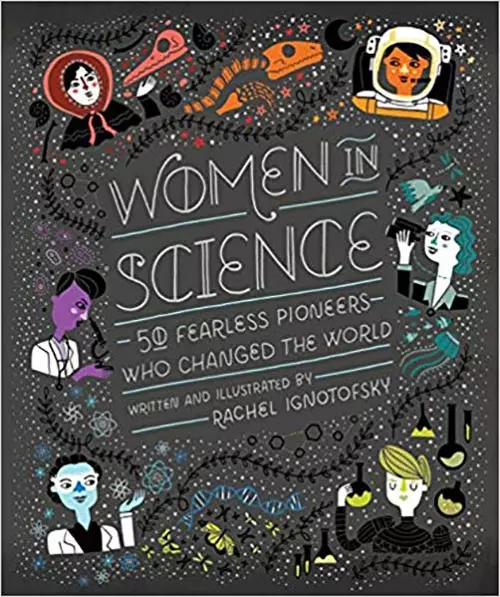
This is not just a science book but also an inspiration for all budding scientists. It contains information about famous female scientists belonging to different countries. It discusses how they overcame societal pressures and prejudices to work towards their dream of making a substantial contribution to the field of science.
This book is not just informative but also a thought-provoking one that every little child should read.
Age: 7-12 years
Author: Rachel Ignotofsky
Pros
- Available in hardcover format
- New York Times best-selling book
- Features an illustrated scientific glossary
- Chosen as the greatest science book of 2016 by BrainPickings
Cons
- Some may find the stories lacking adequate details
"As a homeschooling mother, this book has made it easy to introduce new and inspiring stories to my child. I have made it a point to read to her about one woman a day, and we even dive deeper if she seems fascinated. Besides being a cool source of history, the book has made it possible to have empowering conversations in my home."
15.Best Book On Invention Stories: Mistakes That Worked: 40 Familiar Inventions & How They Came to Be
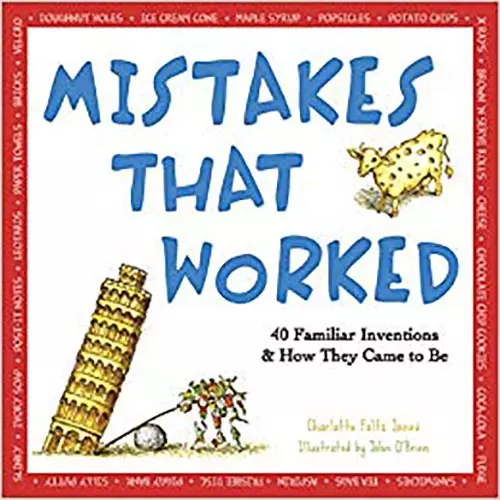
Ever heard of a mistake that went on to become a wonder of the world? Well, this book contains details about a lot of mistakes that went on to become accidental inventions and changed the way people looked at experiments.
A fun-filled book, it contains stories and cute images explaining what exactly went behind each invention, creation, or discovery.
Age: 8-12 years
Author/Illustrator: Charlotte Foltz Jones (Author), John O’Brien (Illustrator)
Pros
- Comprehensive explanations about inventions
- Includes interesting illustrations
- Good for bedtime stories
- Suitable for a wide age range
Cons
- Restricts itself to American history of inventions
16.Best For Learning Experiments: Awesome Science Experiments for Kids: 100+ Fun STEM / STEAM Projects & Why They Work

If your children are not as much interested in science as they should be or if they hate science, then there may be a way to change that. This book is filled with some easy but exciting experiments that can get your children interested or even fascinated by science. The simple and detailed instructions, along with colorful images, help children try out the experiments on their own. It is a great way to teach them about scientific discoveries.
Age: 5-10 years
Author: Crystal Chatterton
Pros
- Teaches hands-on skills
- Easy-to-execute experiments
- Includes colorful photos
- Can supplement school learning
Cons
- Book may have a peculiar smell when new
"Although the binding could have been better, the book's project-rich content is a hit with my little one. The experiments seemed to have charmed my inner child as well, motivating me to join my child in conducting the experiments as a team. Despite its minor flaws, it's an asset for young, eager minds."
17. Best For Brain Excercises:National Geographic Kids Brain Games: The Mind-Blowing Science of Your Amazing Brain
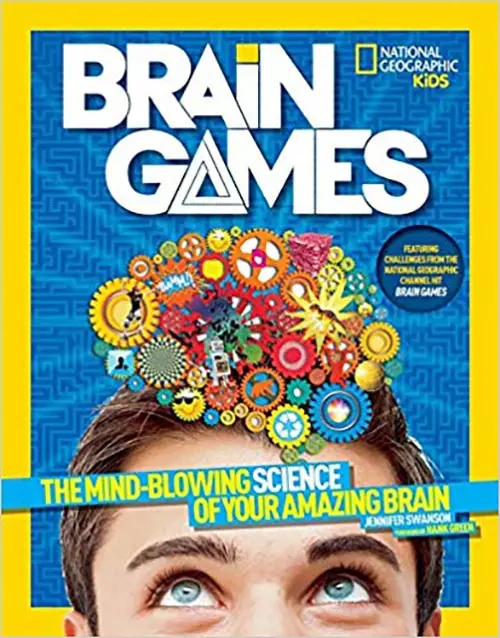
In matters of calculation and memory, nothing can beat the human brain. And this book works towards sharpening your child’s brain.
Filled with brainy puzzles, it also gives solutions and explanations that will amaze your children. The puzzles make them think harder, while the illustrated images make complex theories and ideas simple to follow and understand.
Age: 8-12 years
Author: Jennifer Swanson
Pros
- Promotes problem-solving and decision making skills
- Keeps children focused
- Includes fun facts about science
- Can be used in classrooms
Cons
- Some may find it a bit too wordy
"The games in this book are engaging, informative, and fun for my children as well as adults. Some puzzles are real brain teasers and they keep you guessing. It has actually turned into a family bonding tool now, providing moments of laughter and learning opportunities."
18.Best Book On Space Travel: Pete the Cat: Out of This World
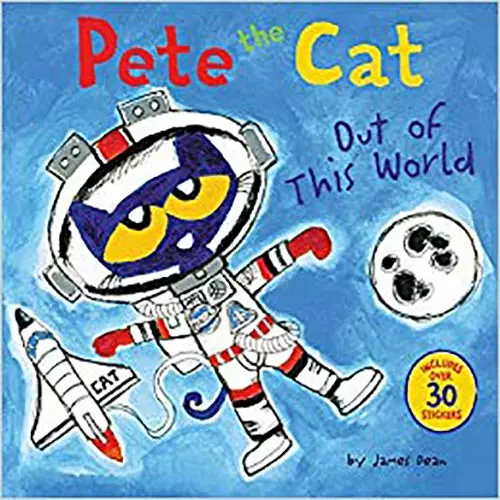
The more you talk about space, the more your children will want to know about it. And when there is a cat on a mission, they are bound to feel curious.
In this book, ‘Pete’ the cat goes to a space camp where he learns about space trips and the different kinds of equipment used or handled by astronauts. It is a good way to educate children about space travel and astronauts.
Age: 4-8 years
Author: James Dean
Pros
- Engaging storyline
- Includes over 30 stickers
- Easy to understand
- Can be used for enhancing reading skills in children
Cons
- Some may find the print a tad small
19.Best Book On The Evollution Of Earth: Earth! My First 4.54 Billion Years (Our Universe)

This book explains the history of Earth, how it came into being, and how continents were created billions of years ago. Its animated illustration makes it fun to learn about our native planet.
You can read this book aloud to your children, as it is explained in a story format. As you read, your child can see the images to understand better. The fun facts included in the book make it all the more interesting for them.
Age: 4-8 years
Author: Stacy McAnulty (Author), David Litchfield (Illustrator)
Pros
- First-person narration to keep children involved
- Ideal for bedtime stories
- Comes with child-friendly facts
- Graphics by award-winning illustrator
Cons
- Content may not be as elaborate
"My son is so fascinated with the book that he often asks me to read it to him repeatedly. Even though a little technical, the book prompts him to ask intriguing questions with every successive reading session. I must admit, it is appealing and informative for me as well."
20.Best For Creative Experiments: The Everything Kids’ Science Experiments Book: Boil Ice, Float Water, Measure Gravity-Challenge the World Around You!
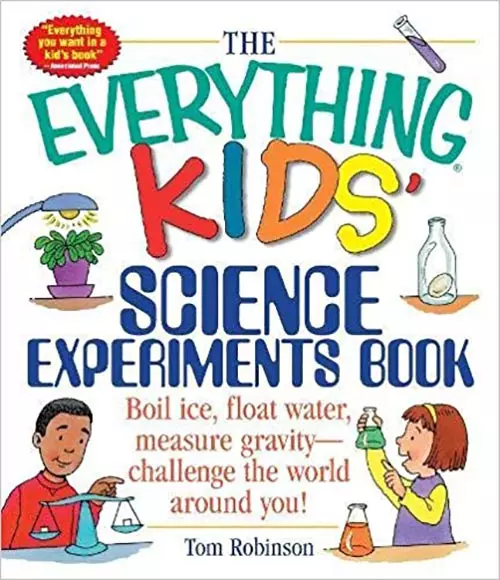
Parental guidance or not, children are always excited to learn new things through their own experiments. And if their efforts and interests are properly guided, then it can turn into something educational.
This book contains numerous experiments that will change the way your child looks at regular things around him. With clear, detailed instructions and simple apparatus, they will enjoy creating new stuff.
Age: 7-12 years
Author: Tom Robinson
Pros
- Includes rarely known science facts
- Promotes STEM learning
- Has various projects
- Includes different branches of science
Cons
- Some experiments may be time-consuming
"This book has brought so much joy to my science-loving child. While the banana and balloon experiment didn't appeal to him much, it still worked, creating a sense of achievement. Despite minor inconveniences, the book has made learning fun for the little one."
21. Best Instructional Experiment:101 Great Science Experiments: A Step-by-Step Guide
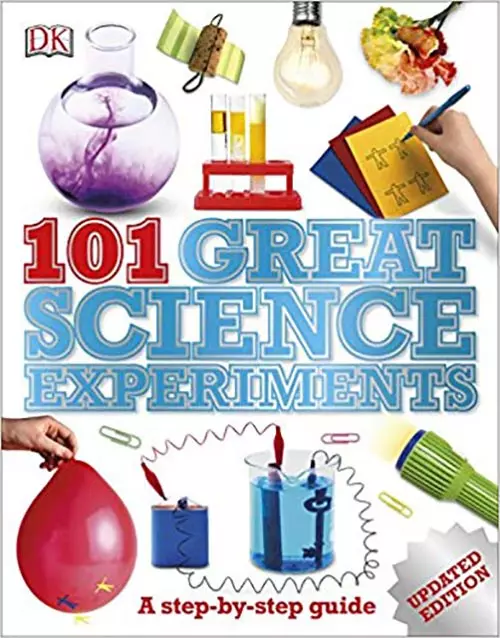
Every child has tried a science experiment at least once in their life. Some stop at one, while for others, curiosity gets the better of them. So, why not give them a book that lets them experiment safely, and also learn from them?
This book includes many interesting and simple experiments that children and adults can do together. It gives detailed instructions for the experiment and is a good way to help children learn something new.
Age: 8-12 years
Author: Neil Ardley
Pros
- Interactive book
- Explains major science topics
- Promotes hands-on learning
- Experiments are safe for little ones
Cons
- May require items for experiments that aren’t household or easily available
"This book, packed with science experiments, sparked joy and curiosity in my young relatives. Clear, easy-to-follow instructions and pictures enhance its appeal. While some experiments require special supplies not typically available at home, it is suitable for promoting meaningful engagement and learning at home."
How To Choose The Right Science Books For Kids?
Here are some factors you should consider when choosing science books for kids.
- Author: Ensure the book’s author is someone from a science background – a researcher, scientist, or teacher. It will help you find a book that is factually correct and explained adequately for your child’s easy understanding. You may also consider books by best-selling authors.
- Image and text descriptions: Choose books with bright illustrations and large fonts so children can read easily and stay engaged.
- Theme: From fun experiments to dinosaurs, different science books cover different topics. So, consider your child’s interests and choose books accordingly to ensure your child has a fulfilling learning experience.
- Reviews: Check the reviews left by other parents to determine if a book is suitable for your child
Why Trust MomJunction?
Wedetso Chirhah is a writer and reviewer experienced in choosing suitable books for different age groups. In this post, he has conducted a rigorous assessment of reader reviews to select science books with interesting illustrations that children can find fascinating. These books are easy to read and understand and include updated information to satiate your child’s curiosity. He has also described why each book is worth reading so you can pick the most suitable books.
The Bottom Line
Science is an integral part of our lives, and when you get a science book for your little ones, they develop an interest and fascination for it from a young age. Children learn best when the books they read have visual representations and illustrations like There’s No Place Like Space: All About Our Solar System. It is also crucial that the book is easy to read and understand, like Pete the Cat: Out of This World, to grab your child’s attention. Science books focus on different areas, so you can consider your child’s interests and pick a book they will enjoy, or opt for a comprehensive book such as 5,000 Awesome Facts, which covers a wide variety of topics.
Infographic: How To Ignite Your Child’s Interest In Science?
Encouraging children to explore and learn science at home enhances their understanding of the world, strengthens foundational knowledge, and fosters skills such as observation, deduction, and trial and error. Check the infographic below for effective strategies to improve the child’s interest in science.
Some thing wrong with infographic shortcode. please verify shortcode syntaxReferences
- Dinosaur Facts | American Museum of Natural History.
https://www.amnh.org/dinosaurs/dinosaur-facts - Exploring the Universe- NASA- Facts
https://www.nasa.gov/facts/Universe/index.html - 10 Wonderful Whale Facts | NOAA Fisheries
https://www.fisheries.noaa.gov/feature-story/10-wonderful-whale-facts#:~:text=Massive%20Marine%20Mammals
Community Experiences
Join the conversation and become a part of our nurturing community! Share your stories, experiences, and insights to connect with fellow parents.
Read full bio of Taylor Beal
Read full bio of Wedetso Chirhah
Read full bio of Poulami Nag
Read full bio of Trisha Chakraborty









